#((in the most non-traditionally Nintendo way possible))
Explore tagged Tumblr posts
Text

She just got here and at this point she's not even sure if she wants to ask what's going on-
#dash commentary#don't mind the zipper (''dancing banana'')#peanut butter jelly sandwich time (crack)#((If anyone who wasn't in the Smash RPC yet was wondering where part of the ''Cruel Smash Mii'' lore I'm borrowing from.))#((most of the mii stuff was between emptyzone and thetraverlershub so thanks for them for reviving the love for miis ))#((i've always enjoyed seeing the miis on dash but it's only now that i finally have found a reason to make something mii related work))#((in the most non-traditionally Nintendo way possible))
1 note
·
View note
Text
25 Years of Rosa
I've been doing this character appreciation series for a while now, and it's about time we got to a very special character – the first character from the first JRPG I ever played that I first really fangirled over – the first character that was my Number One Favorite Video Game Character – Rosa Farrell from Final Fantasy 4.

June 1999
We are going so far back that I have no idea what my first Rosa fan art was. It's not this – but I wanted to highlight it because I was incredibly proud of myself. Rosa, all sad and anguished because she's missing Cecil.
But let's talk some about her, the good and the -- maybe? -- bad.

October 1999
I first played FF4 in May 1999, on a rickety and unreliable Super Nintendo. The cartridge was prone to failure and wiped out my first save once I'd gotten the team underground. But by then, I was invested, too invested to give up and play Chrono Trigger or something. I had to find out what happened to Cecil and Rosa and everyone, so I slammed that cartridge right back in and started up a new game. Fortunately, that one lasted all the way through.
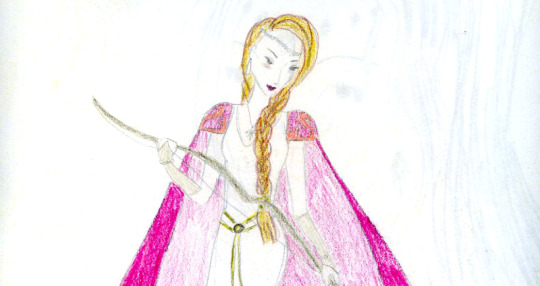
January 2000
As I said, it was my first JRPG, and I adored the medium, especially the story. Along with having a rickety SNES, I also had a house with a not-great internet connection, and this was long before you could easily look up Let's Plays and videos of your favorite scenes. Convinced in my young mind that the game might never properly work for me again and would never, I don't know, be republished, I immediately sat down and wrote a detailed, dramatized summary of the whole thing just so I wouldn't forget it.
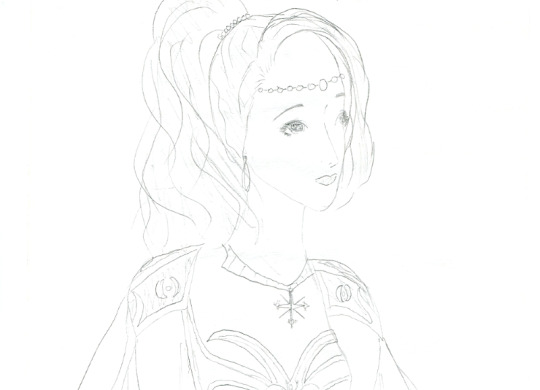
April 2000
And my favorite element of the story was Rosa, the healer, the archer, the female lead. Maybe it's just that FF4 was my first game, but I like to think there's a special spark to Rosa that makes her stand out.
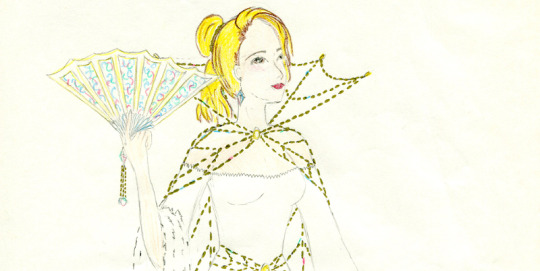
June 2000
I was bubbling over with enthusiasm and, along with writing out a detailed summary, I subjected my patient and obliging mother to endless dissertations on the characters and story. I specifically remember talking to her about Rosa, and her commenting that Rosa was a traditionally “feminine” character, even “passive” – a healer, a love interest, needing to be rescued not once, but twice.
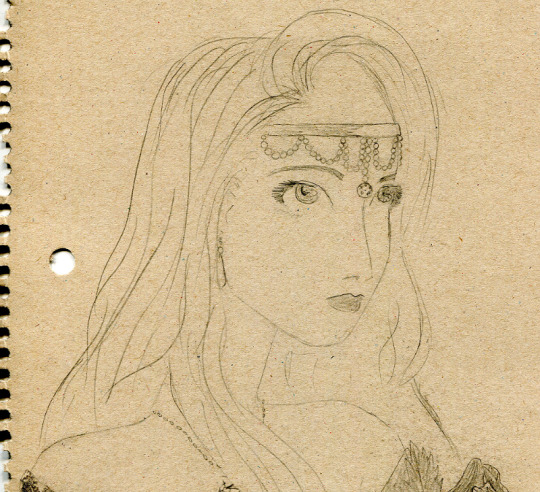
November 2000
And I think that's worth exploring – as neutrally as possible. On one hand, in fiction we do have a very long history of imperiled, secondary, predominantly supportive heroines, and the fact that so many had to be written that way reflects something bad in the real world. On the other hand, I really do believe that most tropes are just tropes, and even if they've been overused, often badly used, that doesn't mean they can't be used.
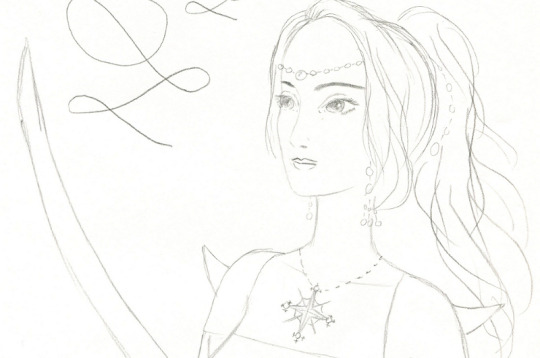
August 2001
In a lot of ways, Rosa is a very safe character. Though she's a studied mage and master archer, that's not why she's in the story. Her main involvement is as a love interest, both to the hero Cecil and his rival/best friend Kain.

November 2001
Rosa's reason for joining the adventure comes down to her love for Cecil. She isn't seeking her own quest. She never states a goal that isn't Cecil's. In fairness, the game is very stripped down, and none of the characters voice very complex motives. You could just as easily say Cecil is Cid's reason for joining the adventure.
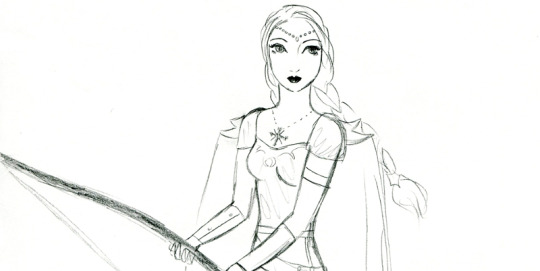
November 2002
But Rosa's story beats all come down to Cecil and Kain. Surely, on such an adventure, Rosa would grow and discover things about herself, but you never hear about it. What you hear about is her worrying about Cecil, worrying about the fate of the world, taking care of others, and of course getting kidnapped. All very safe, non-disruptive things for a female character.
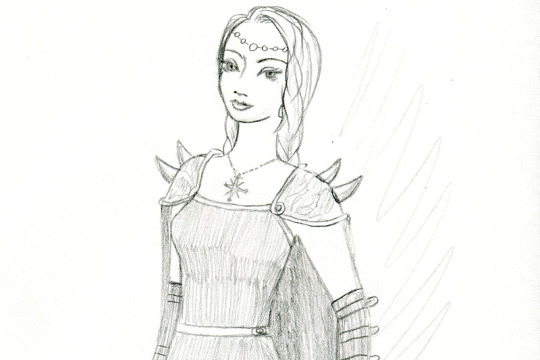
June 2004
There are even moments where the game leans into a slight but still apparent sexism. At the siege of Fabul, despite Rydia and Rosa being practiced fighters and valuable mages, they're sent to tend to the injured while the men go off to fight.
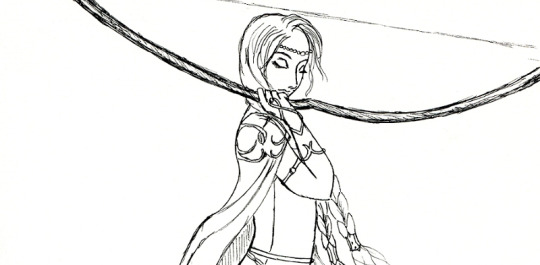
June 2005
This is echoed at the end of the game when Cecil himself, who knows full well how powerful Rosa and Rydia are, still forbids them to join him in the ending level. There's some brief resistance, but then the girls, in all apparent obedience, quietly leave while the men remain to save the world.
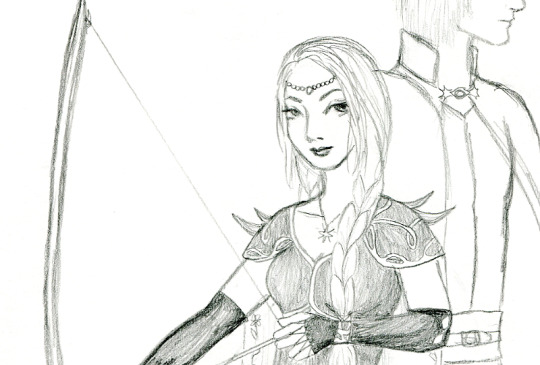
September 2005
Part of it may be that Rosa comes from a very early video game, but if we look at sci-fi/fantasy itself as a genre, we had more boundary-pushing heroines long before the early 1990s, at least in the West. By then, we already had Princess Leia, Red Sonja, Alanna the Lioness, and others.
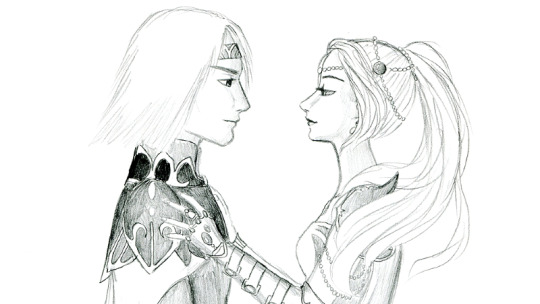
April 2006
Rosa is brave, talented, and loyal, but is she ultimately a regressive character?
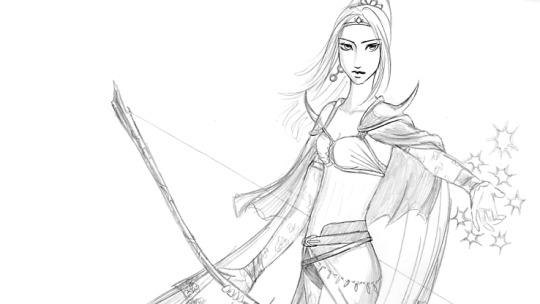
October 2007
I don't know if I have a perfect answer to that. What I do know is that one of the things I've always loved most about Rosa is that she knows her own mind. Yeah, she'll support you. Yeah, she'll cast Protect and Haste on you, and then she'll Cure you when Bahamut takes your HP down to 1. But she does not do it meekly.
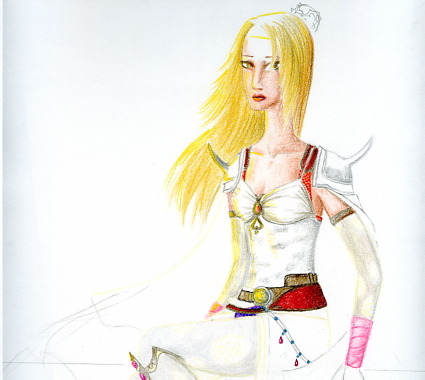
2008
One of her first scenes is her comforting Cecil as he deals with his thorny ethical angst. But she quickly stops murmuring kindly to him and tells him he can't just mope and complain about things. He has to take a stand. He has to own his actions – change himself, one of the themes of the game. She sees it long before he does, and she isn't exactly tender as she tells him.
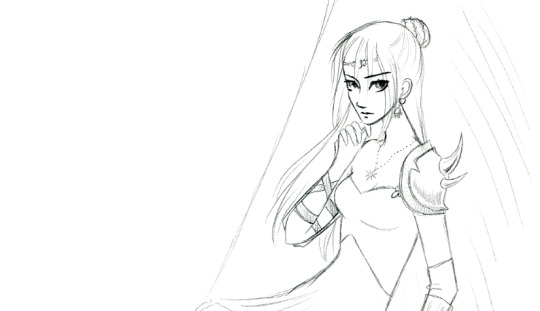
July 2009
She joins the adventure for Cecil, but she doesn't join with him. He leaves without her (she doesn't beg to come with him, she has things to do) and when he goes missing, she sets off on her own in search of him, going faster and getting farther than he did before desert sickness stops her cold.
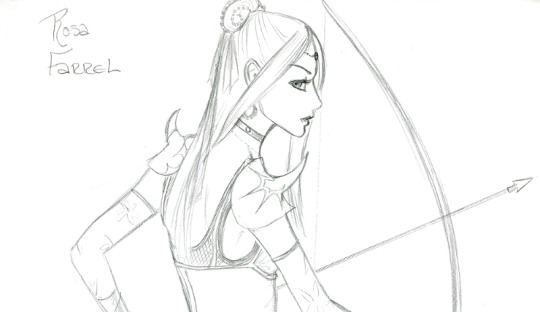
March 2010
And at the end of the game when this selfsame Cecil, this guy who grew up with her and is in a relationship with her and knows her so well, tells her to go home and be safe while he and the guys save the world, she does meekly turn around and leave. But she doesn't go far. She and Rydia stow aboard his spaceship and travel with him and the men to the moon. Whereupon she tells Cecil, with no ambiguity, that he cannot keep her from coming.
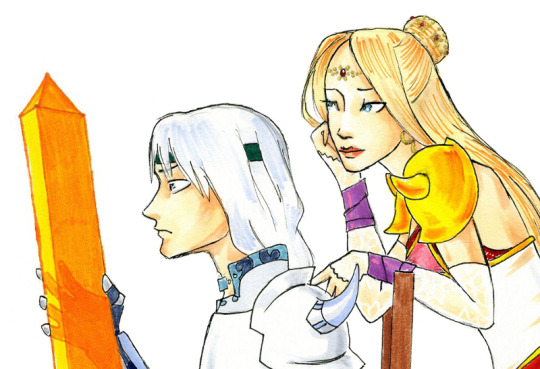
October 2011
Which is a good thing, because I have beaten FF4 many times, and let me tell you, you are not surviving the ending boss without Rosa Curing you, Protecting you, and probably Lifing you more than once.
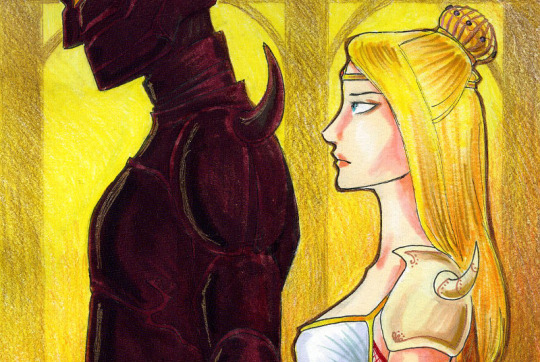
February 2013
So have I exonerated Rosa? I've shown how assertive she really is. Have I proved she's not regressive?
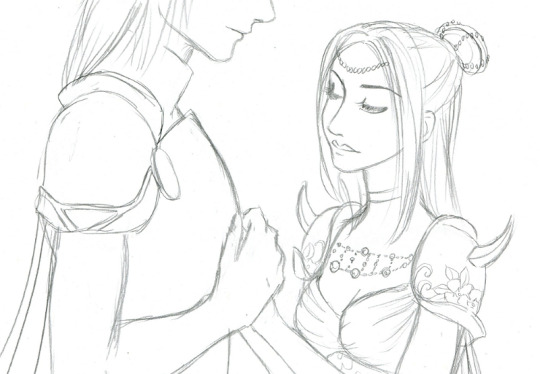
October (?) 2018
Honestly, I'm not a big fan of the assertive woman = automatically good female character theory. A woman can be physically weak, even psychologically timid, and still be an incredibly interesting, complex, and strong character. And another can be bold and brave and badass and still remain uninteresting and shallow.
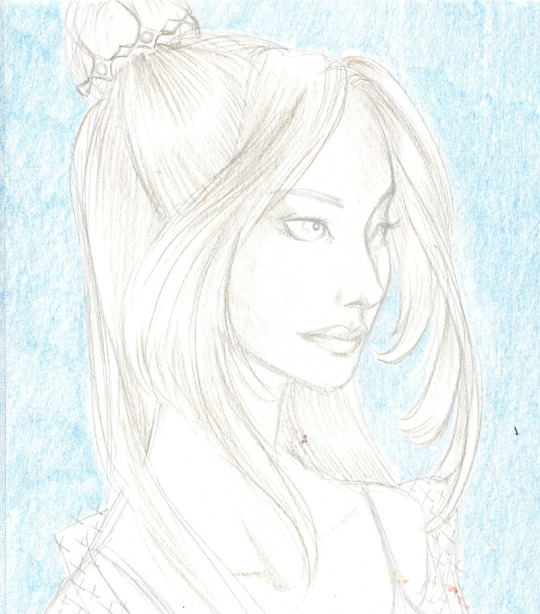
2020
But I think I've shown that, whatever Rosa is, she's not passive.
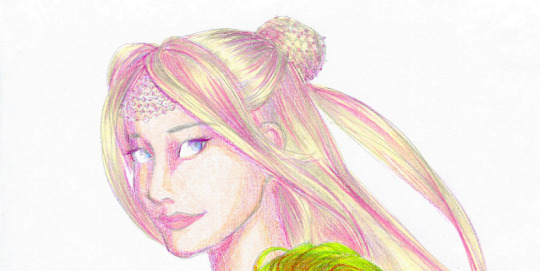
August 2021
Being a back-row archer isn't a problem, being a healer isn't a problem, being conventionally feminine isn't a problem. Even, at the end of the day, being a “safe” character isn't actually a problem. It comes down to how well the character's written – and, even more subjectively, how they connect with the audience.
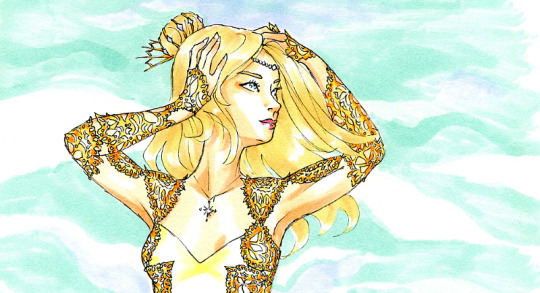
May 2024
Rosa connected powerfully with me. Since then, other characters have come and eclipsed her number one spot in my heart. But I still love her a lot, and I don't want to see her dismissed.
#rosa farrell#rosa joanna farrell#final fantasy#final fantasy 4#final fantasy iv#art progress#character appreciation#long post#meta
31 notes
·
View notes
Text
Tea and Coffee on a Winter’s Night: Psalm for the Wild Built, Legends and Lattes and the Welcome Rise of Cosy Fiction

Narrative structures in fiction have traditionally been fairly straightforward: give your audience stakes, the higher the better. If the entire world (or even universe) isn’t in peril, you’re probably not trying hard enough.
That said, as we reach the winter months here in Australia, like a lot of people I have begun to wonder if there isn’t demand for worlds in which the intensity level is set a little lower. During the lockdowns of Covid I sought solace from my fears in the world of the Nintendo videogame Animal Crossing, in which players are thrust into a new life on an idyllic tropical island, making friends with the creatures that live there and gradually improving the infrastructure of the town around them. Those who ask how to “win” the game have to be content with a non-committal shrug: Animal Crossing offers things to do and achieve, certainly, but the concept of ultimate victory is at odds with its essential nature. It is a safe place—all of the pressure of outcome washing away on a gentle tide. Similarly, for years the concept of “escapism” in literature has been a term of derision: a label that implies that both reader and writer are sharing a delusion in order to hide from their own realities. It is intriguing, then, that the genres of science fiction and fantasy—most commonly attacked with this charge—have embraced a recent turn towards an intensified version of this feeling. In “cosy” fiction, the danger is dramatically lowered, the tone is introspective and internally transformative, rather than externally so, and there is a focus on comfort: heart, hearth, armchair and hot beverage.
Cosy novels are cottagecore. They are the kinds of books you might read upon waking from a nightmare, the literary equivalent of a hot drink by the fire on a cold night.
I would love to introduce two of my favourites to you.
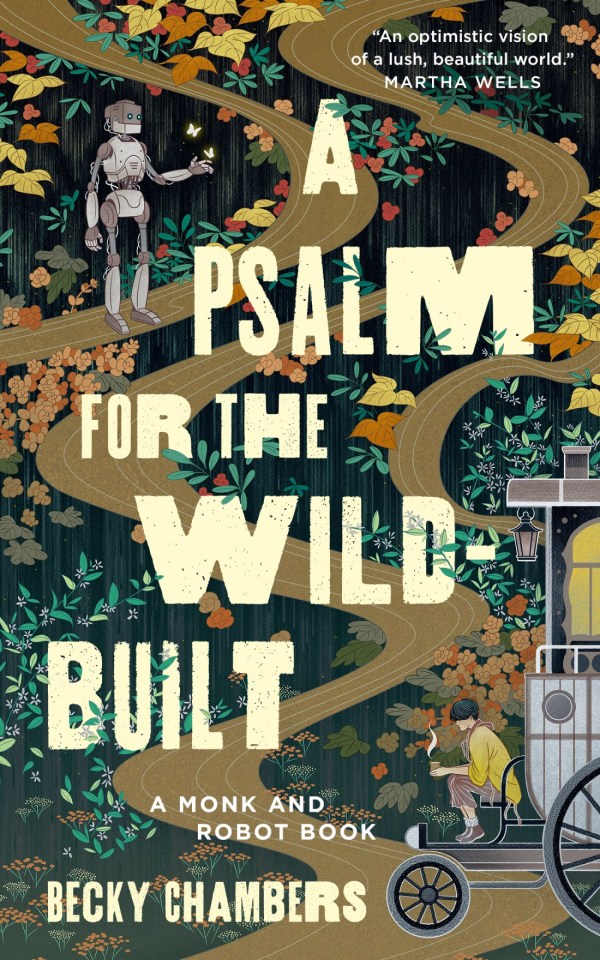
A Cup of Tea:
Psalm for the Wild-Built by Becky Chambers
Becky Chambers’ glorious science fiction story (winner of the Hugo Award for Best novella) is the story of Dex, a non-binary tea monk who travels from town to town, composing bespoke blends and listening to the problems of the citizens that live in the places they visit. Dex always feels that something is missing, and one day they decide to brave the forbidden wilderness surrounding the urban areas. The wild is home to the world’s robots, who generations ago gained sentience and requested release from human society. One of them, Mosscap, finds and greets Dex. Together they continue their exploration and shared mission of helping soothe the ills of the troubled while finding purpose in their own lives.
Chamber’s book can be read in only a couple of hours, but its effect is longer-lasting. It is a tale that reminds us that acts of kindness may seem small, but their impact has echoes. Tea is the perfect symbol and metaphor for Psalm for the Wild-Built, a novella that is by turns soothing, meditative, and which never fails to warm some small forgotten corner of the human soul.
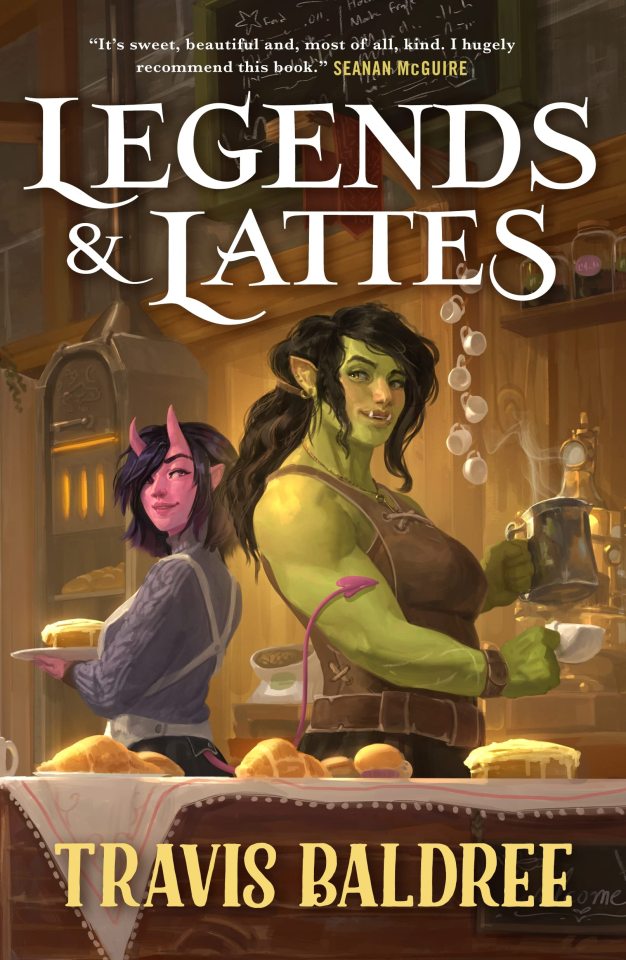
A Cup of Coffee: Legends and Lattes by Travis Baldree
Travis Baldree’s offering to the genre of cosy fiction takes readers to a very different landscape: the fantasy city of Thune. Here we meet Viv, an orc swordswoman and mercenary who has become weary of a life of violence and is captivated by an obsessive new vision: the possibility of starting a coffee shop. Her first hurdle, of course, is that no-one even knows what coffee is, but that is the least of her problems… her old life insists on trying to find a way to squeeze back in and drag her back to battle.
Like coffee, Legends and Lattes is similarly thawing but with a little more intensity of energy and a slightly sharper edge. Baldree creates a sense of community that is perhaps the book’s greatest asset, and both Viv and the reader form deep and enthusiastic connections with the novel’s diverse cast of characters: the hob Cal, the succubus Tandri, Thimble the baker, Pendry the bard and Amity the dire-cat. Watching Viv’s coffee-house gradually develop its menu, popularity and personality is a joy to behold. Quite simply, it allows for the reader to inhabit the part of living in a fantasy world that is lost to so many distant quests for forgotten treasures: community. If in most fantasy novels the reader finds a band of companion warriors, in Legends & Lattes they find friends: the kind that will sit with you quietly by the fire in an armchair, talking about nothing, with a freshly-baked cinnamon scroll to share between you. It is a story about friendship, love, and also about the fact that often in life it is the simplest of dreams that bring us the most satisfaction.
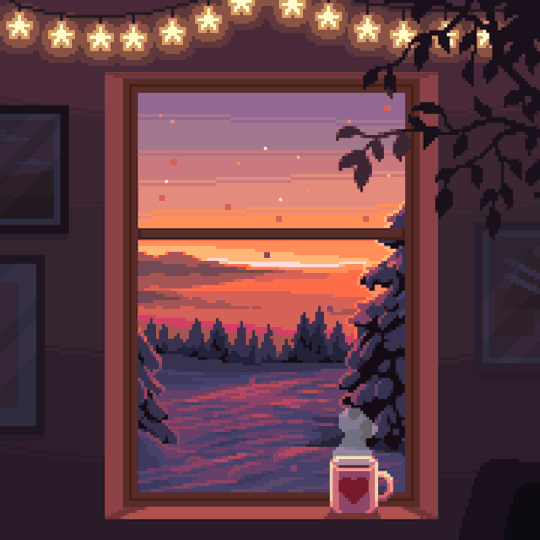
I love cosy fiction. As I explore the genre more, cosy books remind me, fundamentally, that it is okay for a story to just make us happy. We do not owe it to ourselves or anyone else that our literature is always an instrument and metaphor for struggle, personal improvement or academic deconstruction. What books can do—just as importantly—is give us a haven of respite from a chaotic world. A book can alleviate a small moment of human suffering. A book can heal a wound that you can’t see.
Many of us go to a cup of tea or coffee for a brief retreat and a touch of warmth in our bones.
If that’s the direction that fiction is heading in, pour me another.
#cozy fiction#cosy fiction#review#lit#psalm for the wild built#legends and lattes#becky chambers#travis baldree#original
21 notes
·
View notes
Text
The End Of The Console Wars And The Dawn Of Unity
Earlier this year, I watched in awe during the Video Game Awards as leaders from Microsoft, Sony and Nintendo took the stage at the same time and delivered a joint address to those attending and watching at home. The platitudes were what you would expect and not in themselves groundbreaking - about what a great time it is to be a gamer and how exciting the future is right now - though not unwelcome and undoubtedly true. What was more meaningful in my mind is who the presenters were, what they represented individually and what their cooperating together - considering their background - to make that address symbolically represented: that the age of console wars is coming to an end and something else, something better for gamers and for the industry, is taking its place.
The awe I felt stems from the fact that this is a far cry from the state of the industry not so long ago, when E3 press conferences, especially those of Microsoft and Sony, were not entirely dissimilar to war rooms. References to each other at that time were avoided at all cost, as if avoiding saying a vulgar word, with the competition only being invoked to point out how inferior what they offered was to the vastly superior console they had to offer. Hostility toward the competition was not only rife on their part, but felt encouraged to be had on the part of consumers loyal to their brand. And we took the bait.
I’m embarrassed now to admit that I fell for this trap myself. I was an Xbox loyalist primarily, though because I grew up with Nintendo originally I had a soft spot for them as well. This made Sony the source of my own derision. With the original price tag on the PS3 and the eventually redacted “boomerang” controller design that console was initially slated to have, there was no shortage of fodder I felt given by Sony at the time to condemn their console. The trick is, criticism of those aspects of the console did have some objective validity, but there’s a fine line between making well-founded criticism based on rational thinking and deliberation from essentially accidentally supporting a valid negative position, but based purely from irrational, emotion-based brand loyalty which would have demanded I see what Sony offered as inferior regardless of the specific facts surrounding it.
I feel especially embarrassed to have felt that way, because in life I have traditionally prided myself on being a rational thinker, but in that case, given my passion for the games industry I was easily led away from it. Thankfully that was as far as such sentiment ever got with me, but the capability was always there for that to spill over into applying such irrationality and emotion-based decision making in other areas of consideration about institutions in society. This was the great unspoken, and perhaps unidentified, insidious nature of what was going on at that time in the games industry: irrational hostility was being fostered, and once that’s been justified in one area of our life, it’s not difficult for such thinking to be applied and justified in other areas of our life, which in the longer term stands to have damaging repercussions for the society we impact. It wasn’t until I matured into an adult as well as gained a personal interest in philosophy that I became able to look back and realize the significance of the implications this toxic atmosphere stood to have.
Real change in the industry in relation to these attitudes only truly started to occur however once those in the industry matured and changed their approach, as was probably always destined to be the case. As the negative culture in the past was brought out by those within the game industry in the first place, for better or worse it means the responsibility in turn had to fall on them to undue that kind of thinking and replace it with new, more positive vision. Thankfully, the effort to do so now seems to be in full motion.
The advent of this finally began to occur with the advent of the concept of cross-play. We have taken if for granted for a long time that while we may be part of a fan base for game or series much larger than the player count of just those experiencing it on the same console we own, we can’t share in enjoyment of it with that larger community. Imagine, it was presented to us, those arbitrary barriers were now gone. Each fan could play with every single other fan of something they love, with community surrounding a game or series being built more within the actual games rather than without. It’s an extremely seductive concept, the seduction not due to any particular way the idea is presented, but simply intrinsic to the nature of the idea itself.
Making the prospect all the more tantalizing was it being pointed out that it wasn’t a goal that needed to be worked for...the opportunity is already here. The backend networking for multiplayer or co-op between different hardware presents its challenges and necessary effort, but is entirely doable. Developers can make it happen and want to. Gamers, in one of the few cases of near universal agreement they’ve had, want it to happen, too. It remains only for those behind the different console brands to want to. The deciding factor preventing us from having a more connected and happier gaming community is no technical challenge: it is a simple act of will.
Unfortunately, immediate consensus wasn’t to be, as Sony showed initial reluctance to the idea. The reasoning presented only served to exacerbate the general frustration at not making universal cross-play a reality: Sony was concerned about maintaining the integrity of the online experience of their brand. This explanation rang hollow to most, however. Microsoft has long been lauded for having the most solid and consistent online experience, though Sony has certainly improved dramatically in relation to their own, so the idea that connection to their service would be a liability rather than at least a non-concern and at most an asset even came across as fundamentally nonsensical.
This being an issue was also compounded by a series of well-publicized hacks of the PlayStation Network that have occurred in the past; while Xbox Live has seen its on issues, the number and severity of the attacks in Playstation’s case create greater alarm. With this being the case, it would seem if anyone had cause to be concerned about connecting themselves to another, it would be on the part of Microsoft and Nintendo toward Sony, not the other way around. For it to be the other way around in spite of this felt like petty standoffishness stemming from the old days of the console wars rather than having any basis in reality or the interests of gamers...including PlayStation fans.
That is one final point that rested against Sony’s philosophy of resistance, perhaps the strongest and arguably the only point that mattered: Sony’s own fans supported the change. It stands to reason there’s an impetus to make fans of the brand satisfied, so when the majority themselves are calling for that change, is it not worth considering its merits seriously rather than dismissing it out of hand? Add in the incident of the temporary cross-play enabling for Destiny, and the intensity of seeing that feature become a new norm in the industry became all the stronger.
While Sony was making their decision, we saw the beginning of a broader change toward cross-play support anyway. Fortnite, Minecraft and Rocket League presented three of the more noteworthy examples of the cross-play concept manifesting as a reality, given the runaway popularity of those titles, but numerous other examples sprang up as well. Minecraft’s case was a particularly interesting one in that it saw the achievement of a different milestone, with Nintendo and Microsoft co-backing the production of an ad about their two consoles being able to work together. I’m not ashamed to admit watching that ad made me a bit emotional. I don’t even play Minecraft myself, but what it represented - about the gaming community coming together more - is really powerful to my mind and extremely encouraging as a gamer who always wants to see the industry get better not just in what it makes for us to play, but in the ideals it represents and promotes.
Flash forward a bit, and we have the VGA’s mentioned at the start and a welcome change of tune from Sony, symbolically represented in the VGA presentation but more literally represented in a number of stories about them getting on board with the idea and even being in direct talks with Microsoft in relation to future ventures. Meanwhile, Microsoft has expressed an interest in expanding access to games that have traditionally been an Xbox experience beyond that console itself. They have candidly expressed their interest in making all future games of theirs available for PC simultaneously, which is certainly well within the realm of theoretical possibility given Microsoft’s ownership of the Windows OS most computers run on. And yet...even this isn’t the limit of where they’ve expressed interest in having their titles reach. Just recently, they’ve elaborated on this philosophy of expansion by emphasizing there is a more vested interest in people playing their games than in playing on the Xbox console specifically. For example, that interest goes so far as that they’ve expressed interest in bringing Halo: The Master Chief Collection to PlayStation.
This is, in many ways, the best example of this industry-wide change in philosophy I’ve been discussing. I’ll admit, in the spirit of full disclosure, to being a long-time and avid Halo fan, but when I make that statement it isn’t about complimenting that franchise or Microsoft. What I am directing attention to is the fact that Halo, which has always been Microsoft’s flagship franchise for Xbox and closely associated with its success, is something they are willing to pass access to to players on their competitors’ console. This idea was so beyond inconceivable during that period not long ago I alluded to, that if you had presented the idea as a serious possibility, you’d have been considered an idiot, or insane. But now, it’s an idea that’s had interest expressed by Microsoft at the executive level.
Those players on PlayStation are the key factor of note here, though. It isn’t about Microsoft and Sony becoming best friends, though they seem to be getting along better all the time, which is sure to be a boon for gamers in the future in as yet unknown ways. It is about simply letting players play the games they want. Gaming, like so many pastimes, can be an expensive one, and locking gamers out of access to numerous quality experiences deserving of being explored by all because they can’t reasonably justify - or literally can’t afford - the price tag of another console needed to access those experiences is a shame, and antithetical to the spirit of connectedness and community the gaming culture, at its best, strives to be about.
Destroying these arbitrary and artificial barriers and instead working collaboratively on ways to bring the global gaming community ever closer together, as a family, is the rightful course toward which the industry should be directing itself. And, who knows...maybe in the process of fostering this spirit of inclusion, the game industry can get some of that positive spirit to rub off on those who play games and get them in turn to be more inclusive of others in the world outside of the games. And the world beyond gaming isn’t so different from the world of gaming in that one respect: both are much richer for getting others in on our fun.
So keep it up, video game industry. We all came to play after all, so let’s ALL play. Cheers.
#video games#gaming#online gaming#video game awards#sony#microsoft#nintendo#playstation#xbox#xbox live#psn#xbox one#ps4#nintendo switch#project scarlett#ps5#e3#destiny#fortnite#minecraft#rocket league#Halo#master chief
8 notes
·
View notes
Text
No, Nintendo Does Not Hate Metroid

Nintendo, a company that makes video games, recently announced that after almost two years, they were scrapping all current work on Metroid Prime 4, taking it from whatever mystery studio was working on it, and giving it to the hallowed minds at Retro Studios to start over with, hoping to get it right.
This was greeted with rapturous applause by Metroid fans, who almost universally recognized how good Nintendo was being to them, and were highly appreciative of the fact they’d be willing to write off all the resources they’d spent so far, just because the game wasn’t up to snuff.
I am of course kidding. That up there was a joke. Metroid fandom contains the whiniest, most entitled, hardest-to-satisfy fans of any Nintendo property, and while the majority of fans were cool, the loudest ones were typically the whiners. Most notably, a not-insignificant section of the fandom has gripped, with an unshakable hold, the idea that Nintendo doesn’t respect or even dislikes the franchise. I’ve listened to this particular whine for years and years, ever since there was an unimaginable eight-year gap between Super Metroid and Metroid Fusion. Never mind that other beloved series of yore, from Mega Man to Final Fantasy, have also gone similar periods without a new game. Never mind that non-Japanese fans of Nintendo’s own Earthbound are still denied the chance to play the final game in the series, and probably always will be. Never mind that Sonic fans suffered under a notorious drought of good games lasting two decades before Sonic Mania finally happened. None of that means shit: Metroid fans are the most persecuted, victimized, and unfairly treated fandom in video games.
Now, I’m the last guy to feel I need to defend a massive company like Nintendo, but in this case I’ll make an exception. Because just like Ghostbusters fans who can’t figure out their particular obsession just isn’t as relevant as they want it to be, Metroid fans need to grow up and start appreciating what they have gotten, rather than what they haven’t. Below are the three reasons why Metroid fanboys aren’t even the least bit as ill-used as they think are.
Almost Every Metroid Game has Been Excellent
The nature of video games is such that many more entries in a successful series are usually produced than in other mediums like film. Even a series like Metroid, which has been iterated less often than Nintendo’s other properties, has had eight fully fledged games since 1986, and 10 if you count the heavily re-worked upgrades of the original game and Return of Samus. Of those, only a single one, Other M, has been poorly received, and there’s no indication that’s what Nintendo expected. After all, fans were excited when the series got handed to Team Ninja; the idea that this was callous on Nintendo’s part, for not developing the game themselves, is something that only took hold retroactively, and you know what they say about hindsight. The original Metroid, Super Metroid, Fusion, and two of the three Prime entries are among the more critically lauded games in history, and excepting only Other M, all of the others have received highly positive reviews. The Metacritic average for the mainline Metroid games is an 89 of 100. Boy, look how much Nintendo hates this franchise, going out of their way to make good games for it and crap like that.
The Bad Spin Offs are Nothing Compared to Other Series
One of the big pieces of evidence Metroid fans like to roll out to prove Nintendo loathes Samus like unto the heat of a sun is that they’ve spent some of their time on it making poorly received spin offs, like Blast Ball and Federation Force, that don’t capture the spirit of the series. “Look!” they shout, from atop the Tower of Cluelessness high on the Oblivious Cliffs, “They aren’t doing what a bunch of us fans who have never programmed a game or made a decision about a franchise think they should be doing, so they clearly don’t care!”
You might already see the flaw in this thinking. By this standard, nearly every company with a long-running series hates that series. Capcom has inserted Mega Man into soccer and allowed him to be licensed out for extremely shitty PC games, and have pooped out almost as many crappy Resident Evil-themed spin-offs as there are main Resident Evil games. Square has pimped Final Fantasy out to every possible genre, from racing to fighting to freaking tower defense, all while taking ages to finish the next main entry in the series. Nintendo themselves have slapped Mario on every possible thing they can, and despite strong sales to dumb people, Mario Party is notorious for being a bunch of slapped together mini games for people who like their games to be completely random.
If bad spin-offs proved anything about what Nintendo thinks of Metroid, the fact they’ve spared it from as many as other series get would actually support the idea they are more protective of it.
Metroid Doesn’t Deserve as Much Love as You Think it Does
Economics 101 is now in session. All right, children: why does a company make things?
“To make their fans happy, Mr. Eft!”
Wrong, little Dingleberry! They make things to---say it with me---MAKE MONEY!
See, companies like money. And this is especially important for an industry with relatively low margins and high costs like video games, because folks like the evil satanic Metroid-hating demons at Nintendo need games to sell well not only to justify further games in that series, but to fund further games in that series. Unlike, say, Disney, they don’t typically have the option of busting out an Avengers and making 1000% profit. Unless it is something really massive and popular and guaranteed to sell, like Call of Duty or Pokemon, most franchises live entry to entry, relying on the previous one being profitable to decide if the next one will ever be made.
And here’s some economic reality for you: almost from the outset, Metroid has failed that test more often than it has passed it. Yes, the series has sold decently---for a minor franchise. The fact that it is legendary among gamers and highly influential among designers has not traditionally translated into the kind of money it needs to guarantee the entries keep rolling out. One of the most frequent desperate cries of the Lesser American Hardcore Metroid Fanboy plays out something like this: “If only Nintendo put as much effort in as they do for Mario and Zelda, it could be a real blockbuster!”
Except it couldn’t. And it has proven that time and again. It has sold, it is often said, respectably. That’s a business term for “We didn’t lose money…but it didn’t exactly pay our salaries, either.” Metroid’s critical and fan status is simply not reflected in sales, where Samus is holding at the 14th overall spot in Nintendo’s history. She’s managed to scrap together around 17 and a half million units moved in three decades, compared to just over a hundred million for Zelda and hundreds for Mario (that’s including every Mario game of any kind, but if you only include platformers, the series is still on top).
Simply put, Metroid doesn’t get the same attention as Mario and Zelda for the same reason Luke Cage or Cloak and Dagger don’t get as much love from Marvel as Spider-Man and X-Men: financially speaking, it doesn’t deserve it. No one argues that means Marvel hates Luke Cage; the sales just aren’t there to justify an equal amount of time, energy and resources.
Given all that, fans ought to be grateful the series is still around at all. Nintendo has tossed all of the Prime 4 resources spent so far down the crapper and re-started it just to get it right, when they would have been fully justified with just abandoning it. As a big fan of many minor characters and series, take it from me: when your preferred fan obsession is far from being top dog in the overall culture, sometimes you gotta stop whining and take what you get.
#Metroid#the legend of zelda#nintendo#Final Fantasy#video games#resident evil#Super Mario#Mega Man#call of duty#marvel#spider-man#X-men#luke cage#metroid prime 4#ghostbusters
9 notes
·
View notes
Text
Diegesis and The Fourth Wall (Game Studies Week 9)
Diegesis in game is basically what is part of the game world and what is not part of the game world but presented to the player as the game. They are called diegetic and non-diegetic respectively.
How Diegesis is handled in games can have a extreme effect on both story and feeling of the game and the gameplay.
It also is overlaps a bit with the fourth wall sometimes, seeing as it deals with the connections and differences between the game world and the real world.
In Grim Fandango a lot of non-diegetic elements are made more diegetic or removed in order to make the game’s tone more in-line with it’s film-noir inspiration. However this makes it more difficult for the player to play the game.
Some other games that play around with Diegesis:
Drawn To Life

In Drawn To Life the player is cast as the ‘Creator’ and is often directed and acknowledge by the characters in the game directly. The player has a birds eye view in most of the story sections when this occurs so when they talk to the player they look up. A lot of other non-diegetic elements are explained in game to be diegetic. Like the character creation when the hero character is made.
There is also this dialogue;
Mari: Hey Jowee... How do you think the Creator sees us? Jowee: Erm... What if we lived in a white box with two windows... and the box had buttons... and a magic wand! And the Creator used that to examine our lives... And control what we do! What do you think? Mari: That's the dumbest thing I've ever heard... Jowee: Yeah, I guess so...
Which obviously refers to the Nintendo DS, making even the slightly game system diegetic to this game.
Little Nightmares

Little Nightmares goes for a get rid of as much non-diegetic stuff as possible approach like Grim Fandango. However the gameplay does not suffer from this as it does not require a lot of the more common non-diegetic elements such as a health meter as the player character(Six) dies in one shot, or a game map as the exploring is mostly linear.
In addition how re-spawning (another traditionally non-diegetic thing) is represented is interesting. When Six dies in one of the terrifying ways availiable in-game she is shown waking up back at the last checkpoint. As if what terrible fate she had just befallen was only a little nightmare.
As it always is with games whenever you play around with the normal something interesting is produced.
Sources Gregory Weir - Grim Fandango and the Diegesis in Games
TV Tropes - Drawn to Life (Video Game)
0 notes